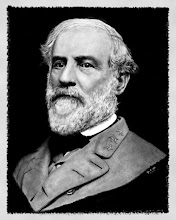Let's consider one more passage for a moment: 1 Peter 3:18, "For Christ also hath once suffered for sins, the just for the unjust, that he might bring us to God, being put to death in the flesh, but quickened by the Spirit." The first thing we need to see is that the death of Christ is inherently tied to purpose and not effect. What on earth do I mean by that? The death of Christ had a purpose and it effected the purpose, but it did not in and of itself effect the end goal of the purpose. Notice how it describes the death of Christ in this passage (we shall note that this is a common theme): Christ suffered for sins that He might do certain things. The death did not negate the need for further action by God, rather it enabled the further action. We see then that the death of Christ had the particular purpose of enabling Christ to do what needed to be done. We see this over and over throughout teh Scriptures in reference to Christ's work on the cross. Consider Rom. 3:25-26:
Whom God hath set forth to be a propitiation through faith in his blood, to declare his righteousness for the remission of sins that are past, through the forbearance of God; To declare, I say, at this time his righteousness: that he might be just, and the justifier of him which believeth in Jesus.There are several purposes set forth in which God enabled something to be done by the death of Christ, but which the death did not in and of itself immediately do. God set forth Christ to be a propitiation of sins, yet this propitiation is through faith, thus we are not born forgiven, as would be the case if the death of Christ in and of itself effected the forgiveness of sins, but rather we receive the propitiation at faith. then God by the blood of Christ propitiates our sins. Further, the purpose of the death of Christ was to make available the righteousness of Christ for the remission of sins that are past, yet again, we are are not born righteous. We are justified and declared righteous at conversion,. Thus the death of Christ was once again an enabler. It provided God with the means of justification so that at the point of faith, God could by the righteousness of Christ remit the sins and justify the believer. Finally, the death of Christ enabled God to be just and the justifier of the believer. Again, the death did not immediately justify us. Instead, it enabled God to justify us. The action of God was still required after Christ died. The death of Christ was not an end in and of itself.
Remember the definition of Arminianism from Monergism in the previous post?
This point of view is in opposition to what is commonly called “unlimited atonement,” which teaches that the intention of Christ's death was to provide redemption for everyone in the same way without exception; but the efficacy of his redemptive act is limited in its power to ensure everyone's final salvation.We can see from the above passages that the death of Christ is not limited in its efficacy or power but it fully accomplishes its purposes for every man, even though he died for all men and not just the elect. The claim by Monergism that Calvinism makes Christ death efficacious as opposed to a non-particular view not being fully efficacious is found to be wrong by just looking at one passage mentioned in my last post. 2 Cor. 5:14-15 says that Christ died for all, and therefore all are dead, and that He died for all that they which live should not live for themselves but for Him who died for them. Note that the text does not say that He died for all that all should live, but merely He died for all, that they which of the all live, should live for Him. In this we see that the death of Christ was then efficacious in that its purpose was wholly accomplished. The Calvinist view of what is required to happen for the death of Christ to be efficacious is fundamentally flawed, and that flaw stems from a misunderstanding of the purpose of Christ's death. The general purpose of the death of Christ for every man who ever lived was to enable God to save them. He loved the world and gave His son that whosoever believes should not parish. This is death for every man to enable God to save them should they believe. The gospel offer of salvation, whosoever will may come, is thus valid for the non-elect as well as elect, Christ is the Savior provided by God for all men (recall that He is the Savior of all, specially of those who believe, thus non-elect are included in the "all men"), He is the available propitiation for the sins of the world. Those who reject Him truly judge themselves unworthy of eternal life (Acts 13:46), the non-elect will not come to Him that they may have life (John 5:40), and the clincher of the deal is that Christ would have saved them if they had come:
O Jerusalem, Jerusalem, thou that killest the prophets, and stonest them which are sent unto thee, how often would I have gathered thy children together, even as a hen gathereth her chickens under her wings, and ye would not! - Mat. 23:37Keep this in mind for a little later. The general enabling of the death of Christ is absolutely vital. If you don't maintain it when preaching the gospel, you will change the gospel to no gospel. But for now, let's consider more deeply this idea of purpose in reference to Christ's death for the sheep. Notice the general vs. particular statements in John 3:16 and Titus 2:13-14
For God so loved the world, that he gave his only begotten Son, that whosoever believeth in him should not perish, but have everlasting life.This is so important for understanding why Christ died for a non-elect man and why He died for an elect man and why He could say so clearly that He died for all and yet be so clear He particularly died for the sheep, of whom non-believers had no part. Christ died for all that whosoever believed should be saved. General and general. There is no particular language here. The non-elect receive the end of the death of Christ in that there is a good news offered and a real offer of everlasting life to reject and they receive grace in this life. Christ did not die to redeem them. He died to enable their redemption (very big difference). The death of Christ is 100% effectual in reference to the non-elect. For the elect however, that is a totally different story and that is what the Arminians missed.
Looking for that blessed hope, and the glorious appearing of the great God and our Saviour Jesus Christ; Who gave himself for us, that he might redeem us from all iniquity, and purify unto himself a peculiar people, zealous of good works.
For the elect, the statement is particular, and the purpose is particular. He died in order that He might redeem them particularly and make of them a peculiar people. The former purpose ended with the enabling. The later purpose ends with salvation, sanctification, and glorification. Thus Christ death had different purposes for different people and thus we find both a general and particular atonement. The Arminians grabbed ahold of the former and the Calvinist the later, both calling the other view heresy ("Arminianism is the first cousin to Romanism. It is a damnable heresy." - Man’s Need of Salvation: Total Depravity and Man’s Inability, Brian Schwertley. "Calvinism is a false religious system that offers a spiritual foundation of sinking sand to the unsaved. Tragically, together with the related systems of Lutheranism and Roman Catholicism, it features prominently among the growing ranks of nominal Christians." - Calvinism a Heretical Doctrine, Prof. Johan Malan).
End of Post 6. It seems I keep running out of room, so in post 7, I will do my best to demonstrate how Limited Atonement is so destructive to the gospel.













+copy.jpg)




No comments:
Post a Comment